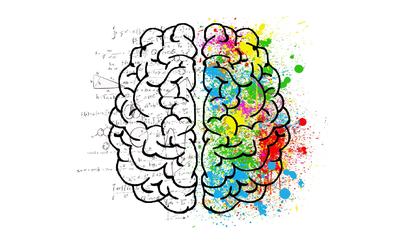
Photo by Usman Yousaf on Unsplash
It Hurts to Think
Yeah, it kinda doesI started taking chess seriously just after I got married. When I got sufficiently addicted to it I asked my wife if she wanted to learn to play, but she said no so I asked her why not. Her answer was interesting.
"It hurts to think," she said. Her idea of a good time was not concentrating intensely on something for an hour or more. Even though I love chess there are times when I'm forced to agree with her, and even though chess is probably the most popular board game in the world it's probably the reason even more people don't play.
It does hurt to think. Maybe "hurt" isn't exactly the right word, at least not always, but it takes a huge amount of mental energy, and just as a lot of people don't view physical exercise as enjoyable, a lot of people don't view mental exercise as enjoyable either. And frankly, if you had to pick one you're probably better off with physical exercise as you can get mental stimulation in a lot of other ways that don't make you feel like an idiot half the time.
My daughter played chess for a time when she was in grade school, but she gave it up because she couldn't deal with losing. Having watched many of her games against her classmates I told her that all she needed to do was think about how her opponents would respond before she moved, but she said she didn't enjoy doing that. It was too much work. In other words, it hurt to think. She disliked thinking as much as losing, so the only winning move was not to play.
You can get around the problem of mental stress to some extent by playing blitz or bullet games where you don't concentrate too intensely, and you can enjoy the rush of adrenaline and the competitive aspect of chess without the deep calculation. That works for some people, but it's difficult to improve at fast time controls without playing a lot of games at slow time controls too.
In general the mental effort and exhaustion is greater when the games are longer and are more important. If you're playing a three minute online blitz game, if your attention wanders at a critical moment and it causes you to lose, no big deal; just start another game. But if you're playing in a big weekend Swiss with prize money on the line and the time control is 90 minutes with a 30 second increment, you calculate hard and continuously for as long as you can. One miscalculated tactic could cost you the game, prize money, and precious rating points. It's not just the calculation and analysis but the stress of knowing that getting it wrong has consequences.
Not everybody can cope with that sort of mental strain, and it gets even worse if you have to play several games in a day. I remember a few OTB tournaments where I've had a long, hard fought game in one round and then played horribly in the next round because I couldn't get back into that same state of concentration quickly after the strain of the previous game had been released. In one tournament I remember playing my fourth game of the day and I literally just couldn't think anymore; everything was just a fog and I couldn't calculate anything at all, and I just pushed wood until my position was lost. Fortunately I haven't had that happen in the last few years.
Maybe the reason it hasn't happened lately is that one of the things that happens to me in long games is that I mentally relax when my opponent has the move. I don't intend to do it; it just happens. It's as if my brain knows it can't keep concentrating all the time, so the time to rest and recover is when the opponent is moving. I'd probably be a better player if I didn't do this, but then again I might suddenly snap and run screaming into the night, too. I imagine some people are naturally capable of sustained concentration and calculation and others have conditioned themselves to it. I suspect that the majority just can't, or have decided that suffering that much isn't worth it.
Chessplayers don't have the best reputation when it comes to mental stability, and maybe the sustained mental stress has a lot to do with it. I heard a psychologist say once that chess is extraordinarily difficult mentally because in physical sports there is a physical release of all that pent-up energy but in chess you can't even speak, much less run. Athletes have a built-in way of draining off the stress of competition that chessplayers don't have, and while physical sports also require some degree of concentration and thinking, chess is on a whole other level. Thinking is the game.
It hurts to think, but chessplayers accept this and play anyway. At times I've wondered if it takes a masochistic streak to stick with this game for very long, but I think it's much simpler than that. In chess the challenge isn't just playing more skillfully than your opponent, but in battling your own mental stress. The biggest win is in overcoming that internal psychological hurdle. Fighting through the pain of thinking. That's why we play.
You may also like
 TomEaton
TomEatonSlower than a speeding bullet
I knew I was bad. I just didn't know how bad. TomEaton
TomEatonGrinding away on Chessable
One tool using another TheOnoZone
TheOnoZoneYour (Chess) Personality
I met this one guy who told me he had a party machete. You know - a machete that you take to parties… TheOnoZone
TheOnoZoneHas Chess Ruined My Life?
Here begins the tale of the most dramatic chess player in the world. Me. TheOnoZone
TheOnoZoneObservation Without Judgement
At university I studied petroleum geology. Over the course of those four years of study, I developed… TheOnoZone
TheOnoZone
